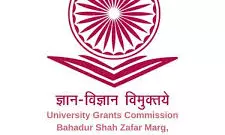
The new draft regulations the University Grants Commission (UGC) has issued introducing subject fluidity and easing rigidity in an academic world that is increasingly becoming interdisciplinary are a welcome step but the move to do away with the national-level test for appointment of faculty to colleges and universities is a regressive move that is bound to downgrade the quality and standard of higher education in India. And the worst and most dangerous part of the new package is the attempt to strip the state governments of their say in the appointment of vice-chancellors to state universities. It is a naked transgression that amounts to abuse of power, violation of federal principles and specific constitutional provisions and gross negation of natural justice.
The farmers of the Constitution put education in the State List in Schedule 7 (as Entry 25) realising and recognising the fact that states, with which the Union is built, will have a major say in educating and shaping their future generations. At the same time, they also recognised the need for some kind of a mechanism to ensure quality of higher education and hence Entry 66 in the Union List, which has entrusted the Union government with the task of the “co-ordination and determination of standards in institutions for higher education or research and scientific and technical institutions”. The UGC Act is framed accordingly and says the agency was formed “to make provision for the co-ordination and determination of standards in universities”.
The Constitution and the law do empower the UGC to set standards in higher education, and it is very well within its power to issue norms on the appointments of faculty at various levels. It is also legally permissible to coordinate the efforts of various entities, which includes universities, at bringing the best to the students. But the “incorporation and regulation of universities” is specifically on the State List, even after education has been put on the Concurrent List, and hence the UGC has no constitutional or legal mandate to regulate the functioning of the universities, which are formed by the acts of the state legislatures. Setting the norms for the selection of the vice-chancellors, who are the administrative heads of the universities, is much beyond the legal domain of the central government’s agency.
While seeking to override the state laws through its rules, which are a form of subordinate legislation, the UGC has thrown every sign of respect for democratic governance and federal principles to the wind and virtually vested the chancellor, an appointee of the Union government, with the power to decide the vice-chancellor while the state government which established and funded the university will be reduced to be a mere spectator. It has also threatened with stoppage of grants and funds should a university dare overrule the UGC.
The Union government must intervene and direct the UGC to withdraw the draft rule which has no place in a federal structure. The unitary character of the country which a section of the Hindutva brigade had advocated is gaining traction in several critical areas including finance and law and order and is now making major steps into the field of education. This must stop if we are to thrive as a democracy. A country of unimaginable diversity cannot be run by decrees and rules; it must be through cooperative federalism which Prime Minister Narendra Modi also happens to espouse.

